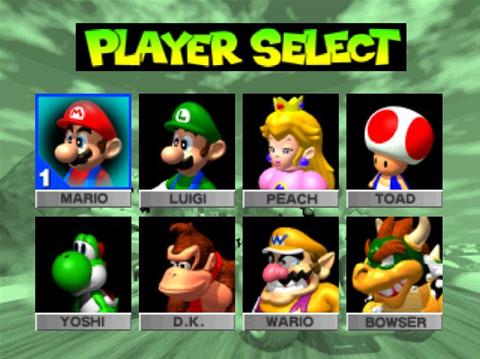The real questions authors need to ask when deciding between self-publishing and traditional publishing


With the news of sudden-star Amanda Hocking circumnavigating – and established-star Barry Eisler eschewing – traditional publishing in favor of self publishing, I thought it important to collect my thoughts on the topic from the perspective of aspiring authors.
Getting a book published is easy. Anyone with $5 and a Lulu account can do it (or for a bit more can go through Createspace, direct to Lightning Source, or any other PoD route). So the discussion for authors must change from how to be published to how best to be published.
Think about it this way, if you are offered a 20% royalty on books sold (which is actually high for most publishers), that means you are giving up on 80% of your potential profit. The truth is when signing a publishing contract you are paying the publisher to sell your book.
Much of the information out there about self-publishing vs. traditional (legacy?) publishing is explained from the perspective of the publishing industry. But what about author?
Below is a straightforward list of things that every author should consider before deciding how best to publish. Admittedly, I haven’t always asked these specific questions myself, but I’m learning. And by proxy (re: reading this blog post), you are learning.
You vs. prospective publisher: Social Media Presence
Ask, does this publisher have more Twitter followers, Facebook fans, or a better established blog than you? Is the publisher actively engaging readers on these various platforms?
Word of mouth sells books. Social presence (particularly online consumer book reviews) is the internet equivalent of word of mouth. Closely examine, and scrutinize if necessary, your prospective publisher’s social media presence. Spend some time perusing the DIALOG (caps intentional) that the publisher is having with readers.
You vs. prospective publisher: Industry connections
Does the publisher engage in industry events such as the AWP Conference or BookExpo? Does the publisher have distribution relationships that you can’t have? Be careful with this one; distribution is easier today than ever, for both publishers and authors. eBooks can be streamlined by a service like Smashwords. Print book distribution to online retailers such as Amazon and Barnes & Noble is simple when using a PoD services like Lightening Source.
The toughest fight for self-published authors (and most small press publishers) is brick-and-mortar store distribution. Even though “Thirty percent of books are still discovered in the brick-and-mortar bookstore” I personally feel that as eBooks increase their claim in the collective reader conscious store presence will become less and less important.
As the capital-I Industry continues to become the lowercase-i industry, the options available for authors to become an active player are ever-widening. This means that many of the once-sacred insider realms are increasingly more accessible to authors.
You vs. prospective publisher: Advertising budget and capabilities
Do you see advertising for the potential publisher anywhere? Keep your expectations realistic with this one. Very few publishers are going to have hi-profile advertising in magazines and industry trades. Think smaller. Do you see publisher ads at some of your favorite blogs or lit sites? Do you subscribe to the publisher newsletter; how does advertising look there?
I would place advertising capabilities low on the priority list. I feel that because word-of-mouth is the most important form of advertising, paid placement in traditional outlets tends to come across as white noise to most readers. Paid ads are more about branding than converting book sales.
You vs. prospective publisher: Time
Does the publisher have more time than you to sell books? Going it alone, the author will have to dedicate a lot of time to the mundane crap (formatting a book for e-publishing/printing, for just one example). Often, this time component is the deal breaker/maker for an author.
As an author, I would assume that your main motivation with this whole writing thing is to well, write. When promotion and back-end businessy stuff occupies your day, you will be left without any remaining time to write. Then we’re at the circular problem of having dedicated so much time to promoting book number one that you are then left without a book number two to promote.
All authors, whether self-supporting full-timers or career-dreaming hobbyists will be expected to contribute to promotion. But how should your time be realistically divided?
You vs. prospective publisher: Other authors on the label
This one is more of a prospective publisher vs. prospective publisher dilemma. Say you’ve decided that going the traditional publishing route is for you. Now, which one do you choose?
The company you keep can become your most supportive street-team. A rising tide lifts all boats, so to speak. Explore the online presence (and sales data, if possible) of other authors on the label. Do these authors have more readers than you? Could readers of their work be readers of yours? Would you have a drink with these people?
Digest this information. Then ask: Is the prospective publisher able to sell 80% more books than you could without the publisher?


Great article, Caleb. Spot on, brother.
Just to needle, as always, Caleb (and it’s just needling) To your last point (and the implicit overall point)–not that I generally disagree–but when one ‘decides on traditional publishing’ and goes about ‘choosing which one is for them’ etc…say I’ve followed all of the adivce…you kind of gloss over that this isn’t exacty the writer’s choice, you know? Otherwise, I really think I should be put out by Vintage, I’ve looked into it, thought about it–do I just call them up, let them know? And if they don’t see it how I do, do I then start settling for publishers that I don’t like as much or do I stubbornly buckle down, try try again etc? (I’m needling, just needling, you know I dig your piece, but the question is a bit glossed, here) Cheers mate.
But that’s just the point: authors do have the choice. Because the entry barrier for startup publishers is so low, new publishers are springing up all the time. It sometimes feels, to me, that there are as many publishers as authors.
If your point is about the quality and/or reputation of the publisher, the I definitely agree; Vintage would be less an opinion for most authors.
Alright–that’s exactly what I was looking for the clarification on–some people (I wrongly lumped you in, whihc is silly) I think see the similarity (even sameness) of ‘small press’ and ‘self publisher’ as a bad thing, don’t consider small presses to be ‘traditional publishers’ (and therefore positive) but look at them with the same derogatory slant that so unfortuantely is still prevalent when it comes to ‘self publishing’ (and therefore somehow negative). I dig what you say here, though, that there are as may presses (at least seemingly) as there are authors–the vintage thing was just a bit of zaniness, I mean I want to be published there, sure, because they always have those powder-matte covers, fuck I love those, but I wouldn’t have drinks with half of those fuckers…unless they were paying. I’ll toss one back with you anyday, and you don;t even need to get me an in with Otherworld (or Black Coffee or any of the other…what is it now 15?…publisher’s you’re in with. I still can’t get over how swell it is to know you’ve got such a slate of projects coming out, well done.
[…] publication process. It’s a simple matter of fewer hands chipping away at potential profits. I’ve written a bit about this before, but basically if a writer has the time and resources to promote (which absolutely cannot be […]